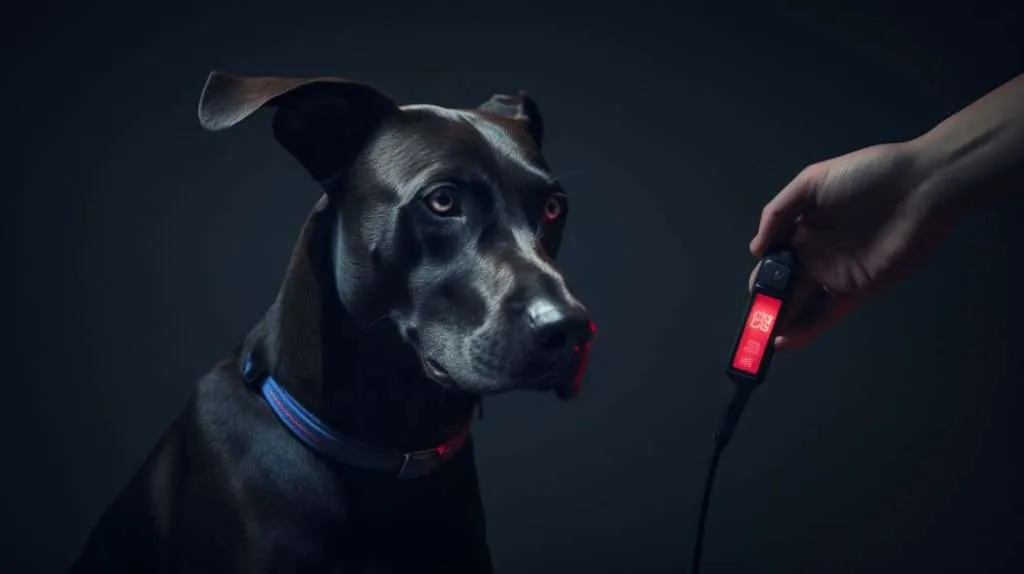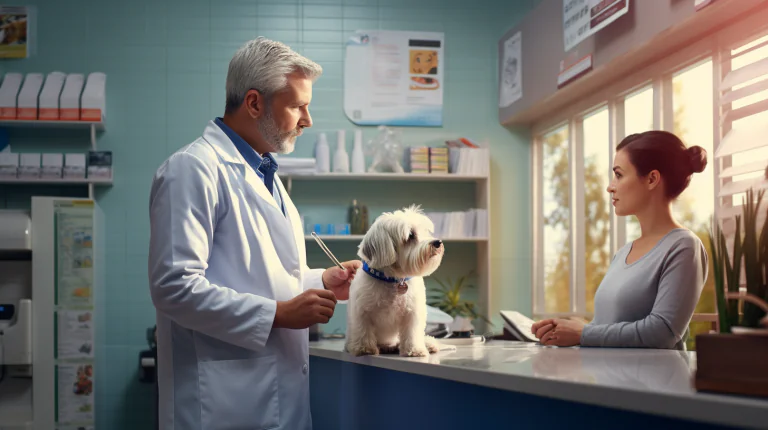Table of Contents
Does your furry friend suffer from the bowel blues?
Imagine this scenario: you come home from a long day at work, only to find your beloved diabetic dog suffering from diarrhea. It can be a distressing situation but fret not because help is here. In this article, we will unravel the mysteries behind why diabetic dogs experience diarrhea and provide you with valuable insights on how to manage this common issue.
Diarrhea in diabetic dogs can have various causes, ranging from dietary indiscretions to underlying health conditions. Recognizing the symptoms is crucial in determining when to seek veterinary care. While managing diarrhea at home can be challenging, we will share tips and strategies to help alleviate your dog’s discomfort. Additionally, we will explore the role of probiotics in promoting digestive health and discuss when it is necessary to consult your veterinarian for further guidance.
By implementing effective prevention strategies, you can minimize the occurrence of diarrhea in your diabetic dog. So, let’s dive into diabetic dog has diarrhea journey and learn how to care for your furry friend’s digestive health.
Key Takeaways Of Diabetic Dog Has Diarrhea
- Recognizing the symptoms of diarrhea is important in determining when to seek veterinary care.
- Probiotics can play a role in promoting digestive health in diabetic dogs.
- Effective prevention strategies can minimize the occurrence of diarrhea in diabetic dogs.
- Promptly addressing the underlying cause of diarrhea is important.
Understanding Diarrhea in Diabetic Dogs

Diarrhea in dogs can be a common and distressing problem, especially if your furry friend is diabetic. Diabetes can lead to a variety of complications, including diarrhea. Diabetic dogs may experience bowel issues due to fluctuating blood sugar levels, insulin therapy, or even food allergies. It is important to closely monitor your dog’s blood glucose levels, as uncontrolled diabetes can make diarrhea worse.
When managing diarrhea in diabetic dogs, it’s crucial to address the underlying cause. Inflammatory bowel disease, heart disease, and other concurrent diseases can contribute to gastrointestinal issues. Additionally, certain foods, such as those high in fiber or with artificial sweeteners, can worsen the symptoms. Switching to a bland, low-fiber diet or therapeutic foods can help alleviate diarrhea. It’s also essential to ensure that your dog receives insulin injections on schedule and in the appropriate dosage.
If your diabetic dog experiences diarrhea, it’s best to consult with your veterinarian. They can determine the underlying cause and recommend appropriate treatment options. Additionally, they may suggest tests to rule out other possible causes, such as infectious diseases or food sensitivities. Remember, keeping a close eye on your dog’s health, maintaining stable blood glucose levels, and providing proper nutrition are key to managing diarrhea in diabetic dogs.
Common Causes of Diarrhea in Diabetic Dogs

When your diabetic dog experiences diarrhea, there are several common causes that you should be aware of.
- One possible reason could be dietary changes, such as introducing new food or treats.
- Medication side effects can also lead to digestive issues in diabetic dogs.
- Lastly, bacterial or parasitic infections can cause diarrhea in dogs with diabetes.
It is important to be aware of these potential causes and take appropriate measures to address them.
Dietary Changes
To alleviate your diabetic dog’s diarrhea, try incorporating new foods into their diet to promote healthy digestion. While managing diabetes in dogs requires certain dietary restrictions, there are still options to explore. Consult your veterinarian to determine which foods suit your furry friend.
Adding fiber-rich foods like pumpkin or cooked sweet potatoes can help regulate your dog’s bowel movements. Additionally, consider incorporating nutritional supplements, like probiotics or digestive enzymes, into their meals. These supplements can support a healthy gut and aid in digestion.
Remember that any dietary changes should be introduced gradually to avoid further upsetting your dog’s stomach. You can help alleviate diarrhea and promote overall digestive health by making thoughtful adjustments to your diet.
Moving on to the topic of medication side effects…
Medication Side Effects
One potential concern with medication is that it can sometimes cause unwanted side effects. When managing the symptoms of diarrhea in your diabetic dog, it’s important to be aware of any potential side effects that may arise from the medication.
Some common side effects include nausea, vomiting, loss of appetite, and drowsiness. These side effects can be temporary and may subside as your dog’s body adjusts to the medication. However, if the side effects persist or worsen, it’s important to consult your veterinarian for alternative treatments or adjustments to the medication dosage.
In addition to medication, alternative treatments can help alleviate diarrhea in diabetic dogs. These include probiotics, which can help restore the balance of healthy bacteria in the gut, and dietary supplements, such as fiber, which can help regulate bowel movements. Discussing these options with your veterinarian is important to determine the best course of action.
Moving forward, it’s important to consider the possibility of bacterial or parasitic infections as a cause of your dog’s diarrhea.
Bacterial or Parasitic Infections
Bacterial or parasitic infections can be a common culprit behind digestive issues in diabetic dogs, affecting approximately 20% of cases. Regarding bacterial infections, treatment options vary depending on the specific type of bacteria involved. Your veterinarian may prescribe antibiotics to target and eliminate the bacteria causing the infection. Following the prescribed dosage and duration is essential to ensure effective treatment.
Prevention measures for parasitic infections include regular deworming and preventative medications. Your veterinarian can recommend the appropriate deworming schedule and medicines based on your dog’s needs. Maintaining good hygiene practices, such as keeping your dog’s living area clean and practicing proper waste disposal, can help minimize the risk of parasitic infections.
Recognizing the symptoms of diarrhea in diabetic dogs is crucial for prompt intervention. Now, let’s delve into the signs to watch out for and the steps you can take to manage this issue effectively.
Recognizing the Symptoms of Diarrhea in Diabetic Dogs

If your diabetic dog is experiencing diarrhea, you’ll notice frequent loose stools that are difficult to control. It’s important to manage these symptoms to keep your furry friend comfortable and prevent complications. Here are some common signs of diarrhea in diabetic dogs:
| Symptom | Description | Possible Causes |
|---|---|---|
| Increased frequency of bowel movements | Your dog may need to go outside more often than usual. | Dietary changes, stress, infections |
| Watery or soft stools | The consistency of your dog’s stools may change, becoming looser or liquid-like. | Dietary indiscretion, food allergies, infections |
| Accidents in the house | Your dog may have difficulty controlling their bowel movements, leading to accidents indoors. | Loss of sphincter control, intestinal inflammation |
You can take the necessary steps to manage your dog’s diarrhea by recognizing these symptoms. However, if the symptoms persist or worsen, it’s important to seek veterinary care to ensure your dog’s health and well-being. Transitioning into the next section, let’s discuss when to seek professional help for your diabetic dog’s diarrhea.
When to Seek Veterinary Care
Feeling overwhelmed by your furry friend’s messy situation? It’s time to get professional help and let the experts handle your diabetic dog’s diarrhea. Seeking veterinary advice is crucial when dealing with this issue.
Diabetic dogs are more prone to complications, so acting promptly is important. While mild cases of diarrhea can often be managed at home, certain situations require immediate veterinary care. If your dog is experiencing severe or persistent diarrhea, has blood in their stool, is vomiting, refusing to eat, or showing signs of pain or distress, it’s time to seek professional help. These could be signs of a more serious underlying medical condition or an emergency.
Remember, your furry friend’s health is in your hands. So, don’t hesitate to consult a veterinarian to ensure the best care for your diabetic dog.
In the next section, we’ll provide you with some tips for managing diarrhea at home.
Tips for Managing Diarrhea at Home

When managing diarrhea at home for your diabetic dog, remember a few key points.
First, adjusting the diet can help regulate your dog’s bowel movements. It’s important to provide plenty of water to keep your dog hydrated and help flush out toxins.
Managing stress can also play a role in controlling diarrhea, as stress can contribute to digestive issues.
Adjusting the Diet
To effectively manage your diabetic dog’s diarrhea, it’s crucial to make necessary adjustments to their diet. Start by adjusting mealtime to provide a more consistent schedule. This helps regulate their digestive system and minimizes the chances of sudden bowel movements.
Additionally, consider increasing their fiber intake. Fiber adds bulk to the stool and promotes regular bowel movements. You can gradually introduce high-fiber foods such as pumpkin or green beans into their meals. However, be sure to consult with your veterinarian before making any dietary changes.
Providing Plenty of Water
Ensure your furry friend has access to plenty of water to quench their thirst and keep them hydrated. Managing hydration is crucial when your diabetic dog has diarrhea. Diarrhea can lead to dehydration, which can worsen your dog’s condition. Diabetic dogs are already at a higher risk of dehydration due to increased urination caused by their condition. Providing ample water will help replenish the fluids lost through diarrhea and maintain their electrolyte balance.
Electrolytes, such as sodium and potassium, are essential for proper bodily function. Dehydration can disrupt these balances and lead to further health complications.
Now, let’s move on to managing stress, another important aspect of caring for your diabetic dog.
Managing Stress
Please take a moment to prioritize managing stress in your beloved diabetic pup’s life, as it can greatly impact their overall well-being. Just like humans, dogs can experience anxiety, and it’s important to help them cope with it.
One effective way to manage anxiety in dogs is through regular exercise. Taking your furry friend for daily walks or engaging in interactive playtime can help reduce stress levels.
Additionally, consider creating a calm and safe environment for your dog at home. Provide a designated quiet space where they can retreat when feeling overwhelmed.
Speaking of health, let’s discuss the importance of regular blood glucose monitoring.
The Importance of Regular Blood Glucose Monitoring

Regular blood glucose monitoring is key in managing your diabetic dog’s condition, ensuring their health and well-being. The importance of blood glucose tracking cannot be overstated, as it allows you to keep a close eye on your dog’s blood sugar levels and make necessary adjustments to their insulin dosage.
Stress can significantly impact blood glucose levels, so monitoring is especially crucial during times of heightened stress. By regularly checking your dog’s blood glucose levels, you can identify any fluctuations or abnormalities early on and take appropriate action.
Potential Complications of Diarrhea in Diabetic Dogs
Monitoring your diabetic dog’s blood glucose levels is crucial, as diarrhea can lead to complications that may disrupt their overall health and well-being. Diarrhea in diabetic dogs can worsen their condition and make managing their blood sugar levels difficult. Some potential complications of diarrhea in diabetic dogs include dehydration, electrolyte imbalances, and difficulty maintaining stable blood glucose levels.
To effectively manage these complications, it is important to promptly address the underlying cause of the diarrhea and work closely with your veterinarian. Treatment options may include dietary modifications, medication to manage the diarrhea, and adjustments to the insulin dosage. It is essential to closely monitor your dog’s response to treatment and make any necessary adjustments to its management plan.
Preventive Measures for Diarrhea in Diabetic Dogs

To prevent diarrhea in your diabetic dog, it’s important to establish a consistent feeding schedule. This means feeding your dog at the same times daily and sticking to a balanced diet.
Proper medication administration is also crucial in managing your dog’s diabetes and preventing digestive issues. Consult with your veterinarian to ensure you’re giving the correct dosage and administering the medication correctly.
Consistent Feeding Schedule
Make sure you stick to a consistent feeding schedule for your diabetic dog with diarrhea, as that’ll help regulate their blood sugar levels and promote better digestion.
For example, let’s say you have a diabetic dog named Max who experiences occasional bouts of diarrhea. By feeding Max at the same times every day, you can ensure his body has enough time to process the food properly and reduce the likelihood of diarrhea episodes.
To establish a consistent feeding routine for your dog, consider the following:
Fix mealtimes: Maintain daily breakfast, lunch, and supper timings.
- Measure food: Use a measuring cup to feed your dog properly.
- Avoid table scraps: Stick to a balanced and controlled diet, and avoid feeding your dog table scraps or other human food.
- Limit treats: While treats can be a part of your dog’s diet, be mindful of the amount and frequency to prevent digestive upset.
Following a consistent feeding routine can help manage your diabetic dog’s diarrhea. Now, let’s move on to proper medication administration.
Proper Medication Administration
When it’s time to administer your diabetic dog’s medication, you’ll find yourself in a thrilling game of hide and seek, searching for the perfect hiding spot your sneaky little buddy won’t find. Proper medication dosage is crucial for managing your dog’s diabetes. It’s essential to follow your veterinarian’s instructions carefully to ensure your dog receives the right amount of medication at the right time. Remember, consistency is key.
Regular Exercise
Maintaining your diabetic dog’s health requires regular exercise. Regular exercise helps manage weight, blood sugar, and insulin sensitivity. It helps diabetic dogs manage stress, which lowers their blood sugar.
Your dog’s mood, energy, and tension can improve with daily walks or playtime. Discuss your diabetic dog’s activity regimen with your vet.
The Role of Probiotics in Managing Diarrhea
Introducing probiotics, a game-changer in managing diarrhea for diabetic dogs. Probiotics are live bacteria and yeasts that are beneficial for the digestive system. They play a crucial role in regulating the balance of good and bad bacteria in the gut, which can help alleviate diarrhea in diabetic dogs.
Here are three key benefits of using probiotics as a treatment option:
- Improved gut health: Probiotics promote the growth of beneficial bacteria in the intestines, which can help restore healthy gut flora.
- Enhanced digestion: Probiotics aid in breaking down food and absorbing nutrients, leading to better digestion and nutrient absorption.
- Balanced immune response: Probiotics support a healthy immune system, essential for diabetic dogs with compromised immune function.
While probiotics can be a valuable tool in managing diarrhea, it’s important to consult your veterinarian for guidance on when and how to incorporate them into your diabetic dog’s treatment plan.
When to Consult Your Veterinarian

Seeking guidance from your veterinarian is essential to ensure the best care for your furry companion. When your diabetic dog has diarrhea, it is important to consult your veterinarian for expert advice. They can evaluate your dog’s condition and recommend appropriate treatment options. Your veterinarian may suggest dietary changes, medications, or other interventions to help alleviate your dog’s diarrhea. Additionally, they can guide how to monitor your dog’s blood sugar levels during this time. Remember, every dog is unique, and what works for one may not work for another. You can seek veterinary advice to ensure your diabetic dog receives the individualized care they need. Moving forward, let’s explore diarrhea prevention strategies for diabetic dogs.
Diarrhea Prevention Strategies for Diabetic Dogs

Implementing preventative measures can help diabetic dogs avoid digestive issues. Here are some home remedies and alternative treatments that can be effective in preventing diarrhea in diabetic dogs:
- Probiotics: Adding probiotics to your dog’s diet can help maintain a healthy balance of gut bacteria and improve digestion.
- Fiber: Increasing the fiber content in your dog’s food can regulate bowel movements and prevent diarrhea.
- Hydration: Ensure your dog has access to fresh water to prevent dehydration, which can worsen digestive issues.
Incorporating these preventative measures can significantly reduce the chances of your diabetic dog experiencing diarrhea. This will not only improve their overall health but also ensure better management of their diabetes.
Transitioning into the next section, let’s discuss how to care for your diabetic dog’s digestive health.
Frequently Asked Questions
Can diarrhea in diabetic dogs indicate a more serious health issue?
Diarrhea in diabetic dogs may indicate a more serious health issue. Complications can include dehydration, electrolyte imbalances, and worsening of diabetes control. It is important to consult your veterinarian for proper diagnosis and treatment.
Are there any specific medications that can cause diarrhea in diabetic dogs?
Medication-induced diarrhea can often occur in diabetic dogs. Managing diarrhea in diabetic dogs requires identifying the specific medication causing the issue and adjusting the treatment plan accordingly.
How long does it usually take for diarrhea in diabetic dogs to resolve on its own?
Diarrhea in diabetic dogs typically resolves on its own within a few days. However, if it persists for more than 48 hours or worsens, seeking veterinary care is crucial. Natural remedies like probiotics and a bland diet can help alleviate symptoms.
Are there any dietary changes that can help prevent diarrhea in diabetic dogs?
To prevent diarrhea in diabetic dogs, you can make dietary changes. A balanced diet with readily digestible proteins, fiber rich food, and low fat can stabilize blood sugar and support good bowel motions.
Can stress or anxiety contribute to diarrhea in diabetic dogs?
Stress-related triggers can contribute to diarrhea in diabetic dogs. Try providing a calm environment, regular exercise, and positive reinforcement training to manage stress and anxiety. Consult with your veterinarian for additional strategies.
What to feed a diabetic dog with diarrhea?
When a diabetic dog has diarrhea, providing a balanced and easily digestible diet is important. You can feed them boiled chicken or turkey, white rice, and low-fat cottage cheese. These ingredients are gentle on the digestive system and help firm the stools. It is essential to consult with a veterinarian for specific dietary recommendations based on your dog’s individual needs and health condition.
How to treat diarrhea in diabetic dogs?
Treating diarrhea in diabetic dogs can be done by first identifying the underlying cause. It is important to closely monitor the dog’s blood sugar levels and ensure they are within the target range. A bland diet of easily digestible foods like boiled chicken and rice can help soothe the stomach. Probiotics can also be beneficial in restoring the balance of gut bacteria. It is crucial to consult a veterinarian to determine the appropriate treatment plan and address any potential complications related to the dog’s diabetes.
What can I give my diabetic dog for diarrhea?
If your dog is diabetic and experiencing diarrhea, it is essential to consult with your veterinarian before giving any medications or treatments. The underlying cause of diarrhea needs to be determined to provide appropriate treatment. Your vet may recommend a specific diet, cure, or other interventions based on your dog’s needs and health condition.
Conclusion
In conclusion, taking care of your diabetic dog’s digestive health is crucial in ensuring its overall well-being. By understanding the causes and symptoms of diarrhea in diabetic dogs, you can act promptly and seek veterinary care when necessary.
Managing diarrhea at home involves providing a balanced diet, using probiotics to restore gut health, and following preventive strategies.
Remember, your furry friend relies on you to unravel the bowel blues and keep their tummy happy and healthy. Together, you can navigate through any digestive challenges they may face.
Reader Advisory: This article, aimed at informational purposes, does not replace professional veterinary advice. While we aim for accuracy, we make no guarantees regarding the completeness or reliability of our content. Always consult a veterinarian before altering your dog’s diet or nutrition.




